Toxicology Fellowship
Download the PDF version of our flyer
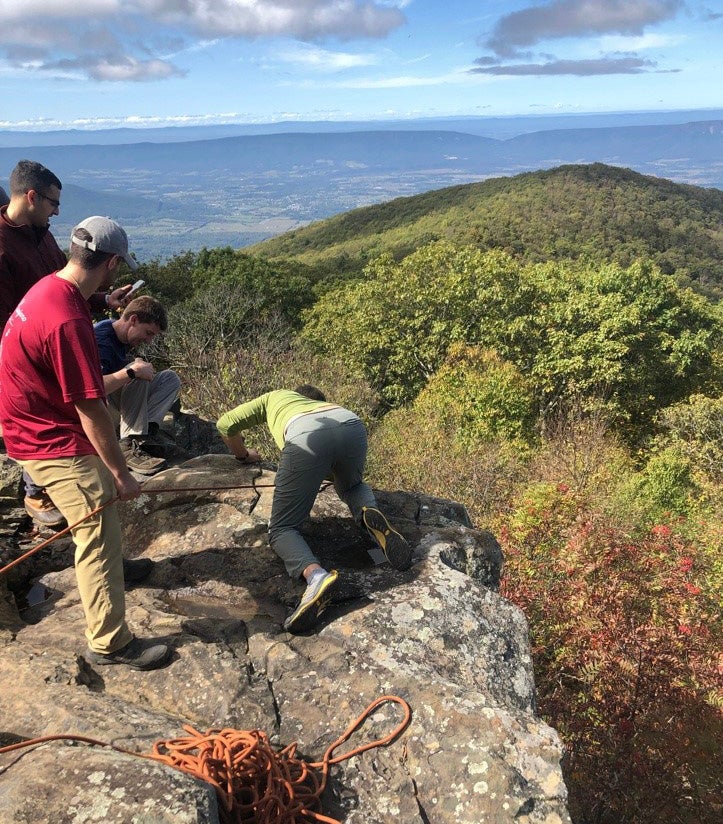
Rotators learning wilderness rescue techniques against the beautiful backdrop of the local Blue Ridge Mountains
- Located in beautiful Charlottesville, Virginia, ranked #5 in best places to live in America and America’s 3rd happiest place
- Robust consult service that manages about 400 patients annually
- Located at a single hospital, which minimizes commute time and maximizes learning
- Fully GME funded without a shift requirement
- Open to graduates of all types of residencies. Past fellows include EM, IM, and Pediatric backgrounds
- Fellows are encouraged to moonlight in their primary specialty to maintain clinical skills
- The Blue Ridge Poison Center is based at UVA. Fellows are involved in managing approximately 2,000 cases per year at the close to 50 hospitals in our coverage area
- Faculty with a passion for teaching with weekly board review didactics with fellows
How to Apply
- Applications are accepted through ERAS or
- Email the fellowship director with a CV, personal statement or letter of interest, and three letters of recommendation
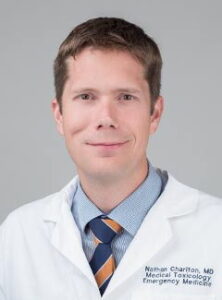
Nathan Charlton, MD
Director, Medical Toxicology Fellowship Program
Phone: (434) 924-5185
Fax: (434) 971-8657
Email: npc8a@uvahealth.org
Highlights
- Faculty dedicated to teaching
- Robust bedside and poison center clinical exposure
- Wilderness medicine integrated into the fellowship
- Multiple research opportunities for fellows with mentorship
- Forensic toxicology and expert witness training
Learn More
- UVA Health is a Level 1 Trauma Center and tertiary care referral center treating pediatric and adult populations
- In-patient consult service, where we see consults and manage patients 24/7 to ensure the best care of poisoned patients
- The Blue Ridge Poison Center is based at our program. The fellows’ office is across the hall from the call center, maximizing learning opportunities. Fellows are involved in poison center logistics, giving them the training to be future medical directors if they desire
- Outpatient clinic with review of referral requests and opportunities for occupational or environmental exposure consultations
- Dr. Nathan Charlton is board certified in addiction medicine. Fellows have the option to join his outpatient clinical practice to enhance their addiction medicine training
- Forensic toxicology case engagement by entities such as local police, FBI, and the DOJ. Faculty have been engaged with criminal poisonings and post-event analysis.
- Collaboration with the Judge Advocate General’s Legal Center and School. Fellows serve as mock expert witnesses to learn the skills to be an expert witness in their future practice
- The direct hands-on care in the emergency department, the floors, and the intensive care units allows master of the subtle clinical findings of the poisoned patient.
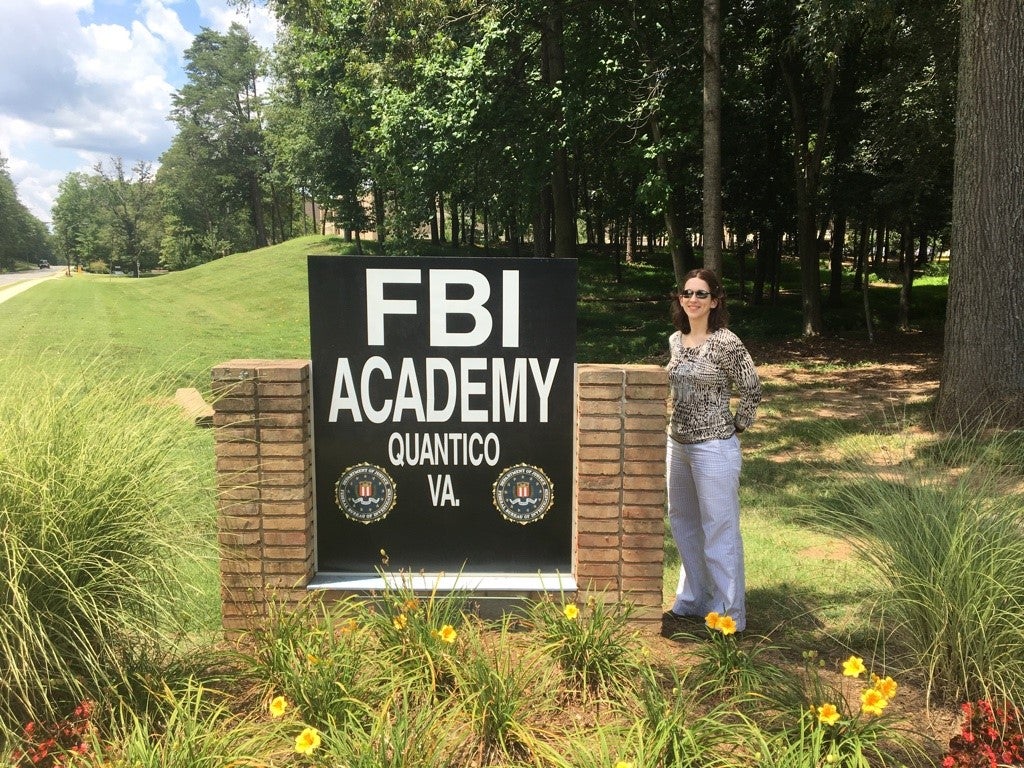
Dr. Heather Borek on a group trip to the FBI academy
- Teaching is a priority and passion of our faculty
- Daily morning teaching with case reviews and bedside rounds followed by didactic sessions led by the attending medical toxicologist
- Fellows help lead the multidisciplinary rotation team, which includes residents, medical students, pharmacists, and pharmacy students
- Rotating lecture series at Emergency Medicine Grand Rounds where fellows hone their didactic skills
- Weekly fellow conference and board review
- In-the-field teaching with frequent toxicology group hikes highlighting poisonous plants, venomous animals, and wilderness survival
- Opportunities for fellows to give local, regional, and national lectures and presentations
- The fellow development curriculum includes enhancement of writing skills for publications and team leadership proficiencies
- Faculty and fellows listen to national webinars. Fellows can participate nationally in journal clubs and case conferences
- Simulation both on mannequins and volunteer victims as part of the simulation and wilderness medicine curriculum
- Innovative teaching techniques, such as toxicology-themed escape rooms and Jeopardy-style game
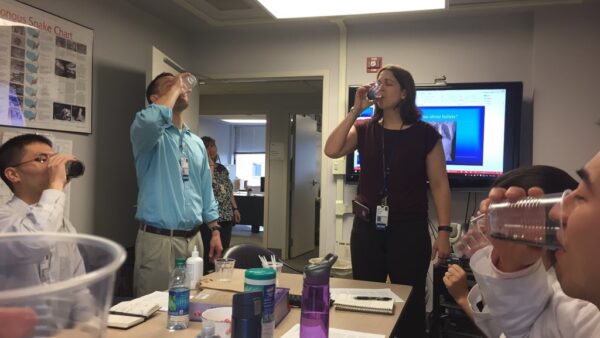
Faculty and learners sampling activated charcoal
The faculty of the Medical Toxicology program have a passion for teaching. Our faculty have won numerous teaching awards and are regarded throughout the School of Medicine as outstanding educators. Our learning environment is supportive and rigorous with very successful pass rates for the Medical Toxicology board examination, but more importantly, our fellows become very competent toxicologists. As the fellows’ success is our ultimate goal, we will challenge our fellows to develop themselves as clinicians and educators.
- An integral part of a successful academic career is the ability to conduct scholarship and research.
- Our team publishes numerous peer-reviewed scientific abstracts, chapters, and unique research studies in the epidemiological, clinical, and bench arenas.
- Our Division has a full-time dedicated faculty epidemiologist and associated data scientist and clinical research manager.
- We collaborate with the 12 schools housed at the University, enabling unique research opportunities.
- The University has numerous internal grants to which trainees can apply and hone their grant writing skills.
- Our team travels to numerous national and international conferences fully funded, giving the fellows the opportunity to meet peers.
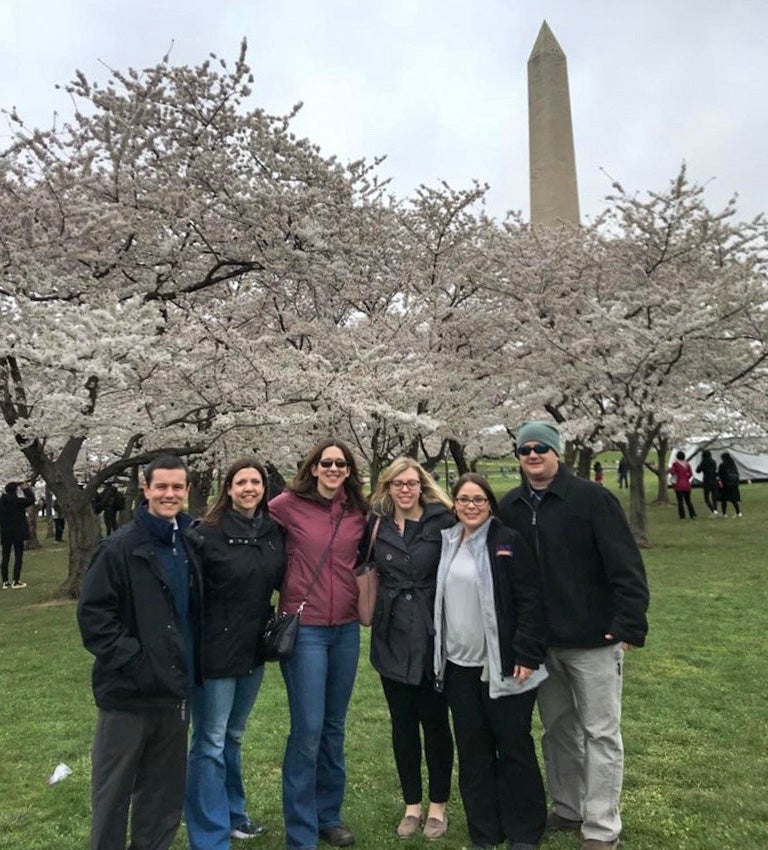
Faculty and fellows gathering at ACMT toxicology conference
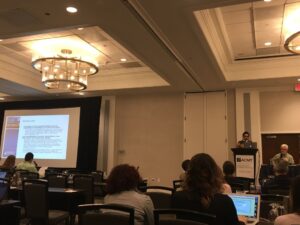
Fellow alumnus Dr. Alsufyani presenting at a national toxicology conference
- The toxicology team works closely with the Emergency Preparedness group at UVA Health
- Guide decontamination protocols
- Assist with mass chemical exposures via the Poison Center
- Strong partnership with local community fire and haz-mat teams
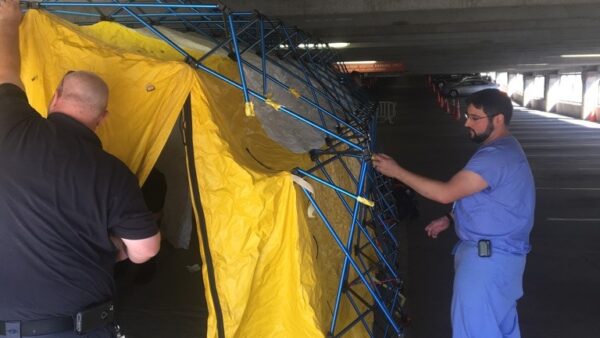
Team assisting with set up of mass decontamination tent
- We teach the business aspects of a successful medical toxicology practice and where funding can be obtained.
- Fellows will learn the operational aspects of managing a poison center.
- Additional administrative training can be obtained through a variety of classes offered by the University of Virginia.
Charlottesville
Located in central Virginia, Charlottesville is the home of the University of Virginia. This historic University was the nation’s first public university, founded in 1819 by Thomas Jefferson. Rich in history, Charlottesville is also the home of Thomas Jefferson’s Monticello, James Monroe’s Ash Lawn-Highland and in close proximity to James Madison’s home, Montpelier. Charlottesville is surrounded by beautiful scenery with nearby access to Shenandoah National Park and numerous recreational activities. Charlottesville and the University bring cultural and sporting events to the area, with music, food, and outdoor activities making it consistently ranked as one of the top places to live in America.
Learn more about why Charlottesville is a great place to work and live:
